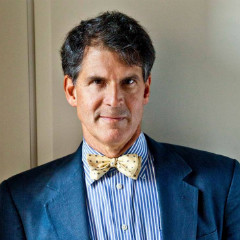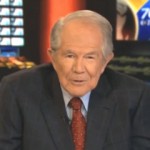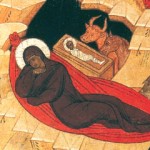Since I originally posted this piece, Esquire has published an exposé of Eben Alexander, very much worth reading. However close his vision is at places with a traditional Christian vision, there are significant problems with his testimony.
When the neurosurgeon Dr. Eben Alexander slipped into a seven-day coma, he could scarcely imagine the visions that awaited him.
Bacterial meningitis had attacked his brain and shut down his neocortex, the part of the brain that enables consciousness. As he explains in a recent issue of Newsweek, his “higher-order brain functions [were] totally offline.”
But Alexander wasn’t offline. Against everything he understood and believed about the way the mind works, rather than losing all consciousness, he was transported.
He found himself amid clouds and gazed upward to see what he describes as “flocks of transparent, shimmering beings” that “arced across the sky, leaving long, streamerlike lines behind them.” They were, he says, “silvery” and “scintillating.” After coming out of the coma, Alexander wasn’t certain what to call these sparkling beings, but he did describe them as “winged” and “advanced. Higher forms.”
Nimble intelligences
Alexander has fully documented his experiences in a book entitled Proof of Heaven. I should say here that I’ve only read as deeply as the Newsweek feature, but I was intrigued because Alexander’s account mirrors several things I encountered while researching Lifted by Angels — particularly in reading what ancient Christian writers said when addressing the subject of angels.
Alexander’s encounter with these transparent, shimmering creatures happened as he was surrounded by clouds and then looked above himself. Compare that with some portions of a poem by Gregory Nazianzen, the fourth-century bishop of Constantinople:
[M]eeting the clouds with circulating reflection,
the sun’s ray unwinds a many-colored rainbow,
while, from above, all the ethereal element gleams. . . .(Concerning Spiritual Beings, lines 2-4)
Beings that sound similar to Alexander’s next swing into view. Gregory talks about “lights which radiate always from the highest light, illuminating lesser intellects with their beams.” These, Gregory says, are “dazzling angels” and “invisible.” He describes them as “nimble intelligences, fire and divine spirits coursing swiftly through the air . . . simple, noetic, translucent. . .” (lines 6-7, 13-15, 17).
Gregory’s angels sound remarkably similar to Alexander’s, and the witness of ancient Christian theologians, homilists, and poets say much the same.
In his book On The Holy Spirit, Gregory’s friend Basil the Great, calls angels the “pure, intelligent, and other-worldly powers.” Sometimes these ancient writers speak of angels as fiery, as did Basil, who identifies their substance as “an ethereal spirit . . . an immaterial fire.” That fire matches Alexander’s description of angels as shimmering and scintillating.
Recall that Gregory calls angels “invisible” and “translucent,” which ties back to Alexander’s description of their being transparent. Other ancient theologians echo the thought.
In his Hymns on Paradise, fourth-century hymnographer and theologian Ephraim the Syrian speaks of spirits as being made of “finer stuff and more subtle than the [human] soul itself.” He says angels “are so refined in substance that even thoughts cannot touch them!”
The monastic writer John Damascene, whose life crossed the seventh and eighth centuries, describes angels in his Exposition on the Orthodox Faith, as “an intelligent essence, in perpetual motion . . . incorporeal and immaterial.”
It’s interesting that both Gregory and John refer to movement, like Alexander’s reference to beings “arch[ing] across the sky.”
Echoing Ephraim, John says that the fullness of the angelic nature is ineffable. “[T]he Creator alone knows the form and limitation of its essence,” he says. This elusiveness of angels that Ephraim and John speak of calls to mind Alexander’s inability to pin a name on the beings he witnessed. There is something transcendent about the angels that the human mind cannot entirely comprehend.
More than molecules
It’s useful to remember that Alexander’s vision happened while his neocortex was shut off. Medically speaking, he shouldn’t have been able to experience or imagine any of the things he reports—a fact that, as a neurosurgeon, he acknowledges and at which he still puzzles and marvels.
For a scientist and former skeptic, Alexander’s impossible vision has changed his life. Despite the risk of losing professional standing, he’s radically altered his assumptions about the spiritual and the nature of human consciousness, going public with his experience.
I suspect that Alexander will face opposition from more than his skeptical colleagues. Fellow Christians, put off by superstition and the excesses and delusions of the New Age movement, will likewise resist his account.
I think they should be slow to judge. I cannot speak to all the aspects of Alexander’s vision, but what I know is that his vision of angels seems within the bounds of accepted Christian teaching and tradition.
What’s more, he’s staking out a position in an important battlefield in our day — defending the notion that our material existence is not our only existence. We are more than a complex of molecules, and his vision may well testify to the fact that the spiritual realm is real.
Again, I cannot speak to all of what Alexander claims to have seen. But strange as it might seem, if Alexander were able to convey his vision to the theologians, pastors, and poets of the early church, they likely would have nodded with recognition.













